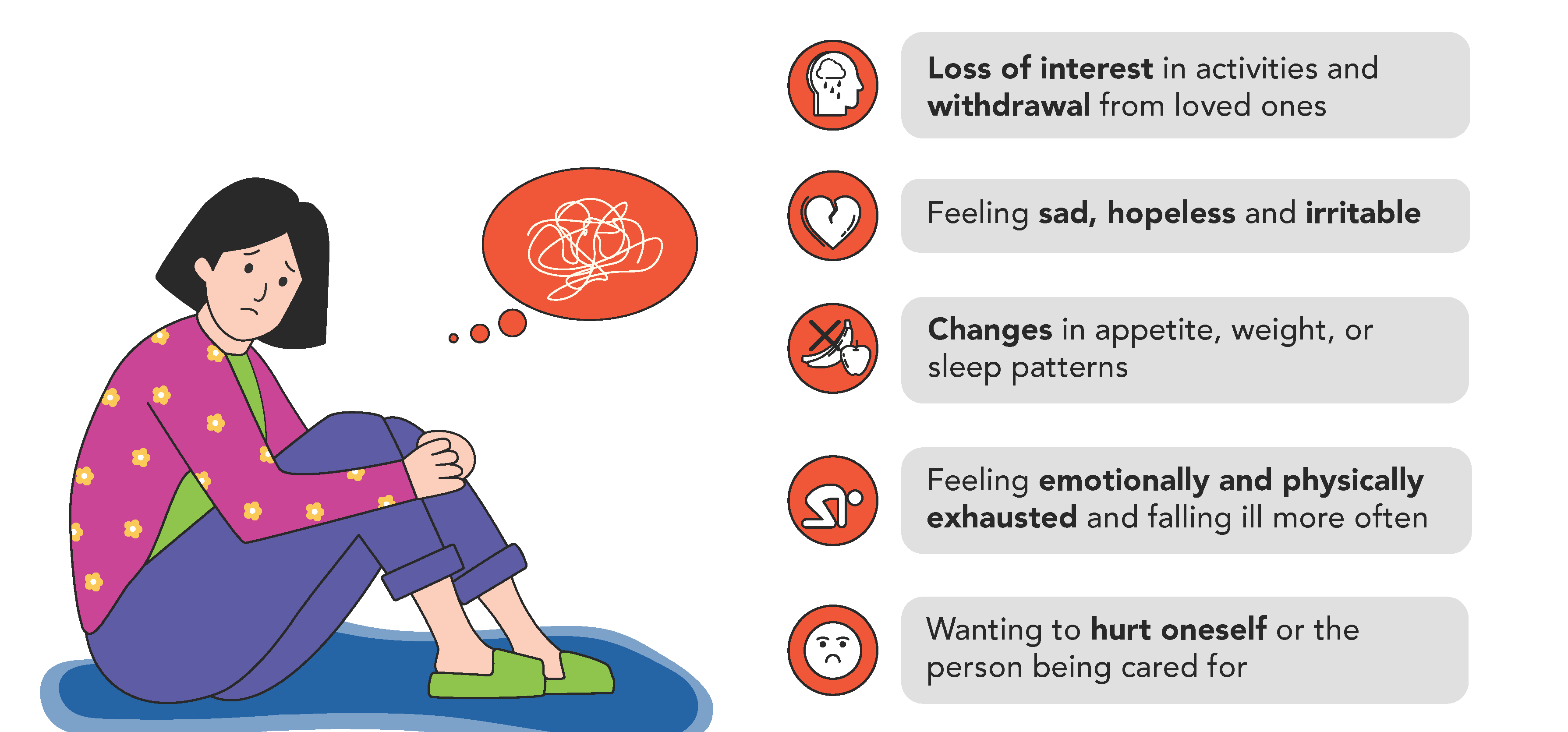 Key Points
Key Points
- Caregiving may be physically and emotionally exhausting. If you find your attitude towards your loved one shifting from care to frustration due to exhaustion, you may be experiencing burnout.
Self-care involves an intentional and active maintenance of your well-being. You can do this by paying attention to your needs and finding ways to cope with stress. As a caregiver, you not only exert physical strength in assisting your loved one, you may also experience stress and anxiety. Therefore, not paying attention to your own needs might put you at greater risk of chronic conditions like cancer, diabetes, heart disease, obesity and pain in muscles and joints1.
Insufficient rest may also lead to burnout. A sign of this is when a caregiver’s attitude towards their loved one shifts from care to frustration, due to physical, mental, and/or emotional exhaustion2. Other symptoms are listed below:

You can check your own stress levels with this Caregiver’s Stress Checklist. If you are experiencing the symptoms of stress and burnout (e.g. persistent changes in appetite, poor sleep patterns and negative emotions), seek help from professionals.
 Actions to take
Actions to take
- Check your stress levels with the Caregiver’s Stress Checklist and seek help if you are burnt out.
- Seek help from professionals if you experience persistent symptoms of stress and burnout.
 Resources
Resources